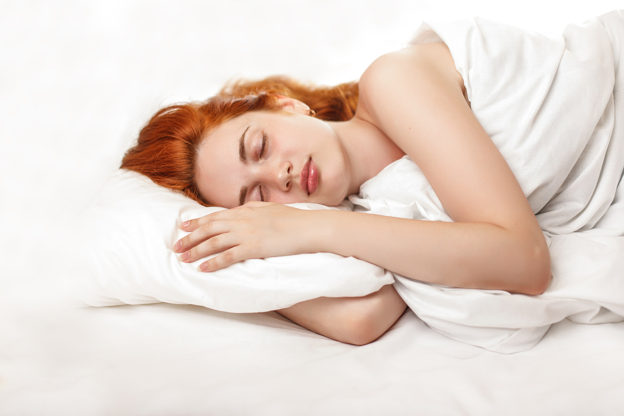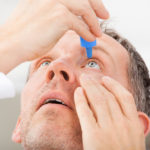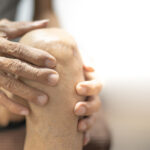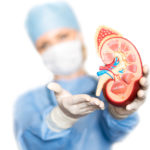By David Blyweiss, M.D., Advanced Natural Wellness
February 19, 2021
Do you ever have those days when your morning starts off slow?
Maybe you have to juggle a few extra tasks you didn’t see coming. You spill your coffee and need to take extra time to change shirts. Before you know it, your entire schedule is out of whack.
Annoying, right?
Well, our bodies love to follow a particular schedule too. It’s a 24 hour cycle known as the circadian rhythm.[1] And even blind people — who can’t see the light around them — follow this rhythm.
It’s fascinating really. And once you understand this rhythm, you’ll see that disrupting the daily schedule can actually do your body physical harm.
Your Body Has “Clock Genes”
Your body senses the circadian clock one of two ways. First, your brain senses light in the hypothalamus with something called the SCN or suprachiasmatic nucleus.
Then, your body also has “clock genes” which live in your organs — the liver for instance. This means light and the simple passage of time will cue your body to go through basic functions.
MD Exposes the Hidden Danger to Your Eyes

When your eyesight starts to fail, it's a real problem. Suddenly you can't go to the grocery store... you can't get to the doctor if you have an emergency... you can't meet your friends for dinner…
Your "regular" doctor doesn't have time to keep up with the latest research. And the same goes for eye doctors. They go to school to learn how to fit you for glasses and contacts, but have no way of preventing the damage and loss of eyesight that threatens your freedom and independence.
Let me show you something that explains a LOT about how your eyes work.
In my FREE Special Report, I'll show you a HUGE, untapped resource for your eyes that safely and naturally restores clear, effortless eyesight.
Click here to get started...
You’re supposed to be on a schedule. But when you alter that schedule by sleeping strange hours or changing your environment with artificial lights – your body starts to shift off schedule and become imbalanced, sometimes making ill.
Just look at what happens every year when we change the clocks one hour ahead for daylight savings time. Studies show that the rate of heart attacks increases by 25 percent on the Monday after a spring time switch.[2]
Things get even worse when you consider working the night shift…
Consider a person who works three nights each week for decades on end. Over time, their bodies will pay a toll.
Even without odd work hours, we’re not sleeping as well as we used to. One Finnish study found the average length of sleep has shortened by 18 minutes over the last 33 years.[3]
When people mess up their sleep schedule, it can cause premature death, obesity[4], diabetes[5], cardiovascular disease[6], depression[7], anxiety, cancer progression, and even chronic fatigue.
When your body isn’t allowed to follow its natural circadian rhythm, you’re not going to get the release of all those hormones you need.
For instance, you need melatonin a couple of hours before you go to bed so you can sleep well. Then, you need cortisol in the hours right before you wake — between three and five o’clock.
Thyroid stimulating hormone (TSH) and prolactin (PRL) are also highly regulated by the sleep-wake cycle.
Lastly, human growth hormone (HGH) is released by your pituitary gland between two and four in the morning.
(Explaining this fact is how I used to get teenage boys to sleep more. I would explain that they could only grow big and strong if they slept at least 8-9 hours a night.)
The World's Quickest Solution for Ending Prostate and Urinary Misery
This has recently been revealed to be one of the only real breakthroughs in prostate health.
The seeds of a strange fruit (sometimes called "Chinese Apples") hold powerful phytonutrients that are a revolution in prostate health.
In fact, UCLA and Veterans Administration research have now proved this to be true.
Not only that, but it may be the worlds quickest solution for ending prostate misery.
Simply stated, these phytonutrients represent a huge step beyond beta sitosterol, saw palmetto, and other phytosterols alone.
Simply click HERE if you want to have fast prostate relief...restful, uninterrupted sleep...no more constant "urges to go"...enhanced virility...and optimal prostate support for life.
A Special Warning for Women
When you stay on a consistent sleep schedule, it allows your body to release hormones properly in order to ward off disease.
This is especially important for women…
Women have almost twice the amount of insomnia as men.[8] A big reason for that has to do with women’s menstrual cycles.
The menstrual and circadian rhythm cycles are constantly influencing each other. It’s a big circle…
Menstruation disrupts the circadian rhythm and a disrupted circadian rhythm can cause menstrual problems.
Women who deal with a severe form of PMS called PMDD are especially at risk. Then, things like shift work and nighttime exposure to light can lead to an increased risk of breast cancer.
So, if you don’t get enough sleep and your circadian rhythm is off, you’re going to be really messed up.
Not to mention the stresses of having and raising a baby. Women lose an average of six months of sleep in the first two years of their infant’s life alone![9]
If you’re looking for ways to improve your sleep, here are a few old standbys.
- Take a warm shower. As you lose body heat, you’ll start to feel sleepy…sort of like a pseudo-hibernation.
- Adjust the temperature in your home to somewhere between 64-68 degrees. I know that seems cold but it’s a proven fact.
- Stop using electronic devices at least one hour before bedtime. The blue light keeps you awake by stimulating the SCN.
- Take magnesium and melatonin each night to help you fall asleep if the above doesn’t seem to be enough help.
These four tips above are what I personally use to help myself get a good night’s rest. I also read a great book each night until my eyelids start to feel heavy.
One third of your life is devoted to sleep — so make sure it’s of good quality!
Sources:
[1] Klerman EB. Clinical aspects of human circadian rhythms. J Biol Rhythms 2005;20:375–86.
[2] Pierson, Ransdell and Berkrot, Bill. “Daylight saving time linked to heart attacks: study”. Reuters. March 29, 2014. Available Online: https://www.reuters.com/article/us-heart-daylightsaving/daylight-saving-time-linked-to-heart-attacks-study-idUSBREA2S0D420140329
[3] Kronholm E, Partonen T, Laatikainen T, Peltonen M, Härmä M, Hublin C, Kaprio J, Aro AR, Partinen M, Fogelholm M, Valve R, Vahtera J, Oksanen T, Kivimäki M, Koskenvuo M, Sutela H. Trends in self-reported sleep duration and insomnia-related symptoms in Finland from 1972 to 2005: a comparative review and re-analysis of Finnish population samples. J Sleep Res. 2008 Mar;17(1):54-62. doi: 10.1111/j.1365-2869.2008.00627.x. PMID: 18275555.
Format:
[4] Jean-Louis G, Williams NJ, Sarpong D, et al. Associations between inadequate sleep and obesity in the US adult population: analysis of the national health interview survey (1977-2009). BMC Public Health. 2014;14:290. Published 2014 Mar 29. doi:10.1186/1471-2458-14-290
[5] Spiegel, E. Tasali, R. Leproult, and E. Van Cauter, “Effects of poor and short sleep on glucose metabolism and obesity risk,” Nature Reviews Endocrinology, vol. 5, no. 5, pp. 253–261, 2009.
[6] Meerlo, A. Sgoifo, and D. Suchecki, “Restricted and disrupted sleep: effects on autonomic function, neuroendocrine stress systems and stress responsivity,” Sleep Medicine Reviews, vol. 12, no. 3, pp. 197–210, 2008.
[7] Riemann and U. Voderholzer, “Primary insomnia: a risk factor to develop depression?” Journal of Affective Disorders, vol. 76, no. 1–3, pp. 255–259, 2003.
[8] N. Soares, “Insomnia in women: an overlooked epidemic?” Archives of Women’s Mental Health, vol. 8, no. 4, pp. 205–213, 2005.
[9] https://www.medicalnewstoday.com/articles/195821#1







